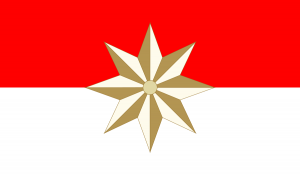Language/Sundanese/Vocabulary/Drinks
Hi Sundanese learners! 😊
In this lesson, we will learn the vocabulary related to drinks in Sundanese. Indonesia has a rich culture when it comes to beverages. From the famous coffee to the traditional beverages, each one has its story, tradition, and taste. Learning the Sundanese vocabulary related to drinks will help you understand the Sundanese culture and communicate more efficiently with the locals. So, Are you ready to quench your thirst and learn new words? 🤔
Don't forget that practice is the key to mastering a new language. You can use the Find native speakers and ask them any questions you have about the Sundanese language or culture.
Let's get started!
Beverages in Sundanese Culture[edit | edit source]
Drinks play a significant role in Sundanese culture, and they are offered in almost all ceremonies and events. They have both ritualistic and symbolic meanings. For instance, tea and coffee are usually offered as a sign of hospitality and respect to guests. In contrast, traditional beverages like bajigur and bandrek have symbolic meanings, as they are thought to have medicinal properties and are served mainly during specific events, such as weddings.
Sundanese Vocabulary Related to Drinks[edit | edit source]
Here are some essential Sundanese words related to beverages:
Hot Drinks[edit | edit source]
Let's start with the hot drinks. If you're a coffee or tea lover, you're going to love these Sundanese words! ☕
| Sundanese | Pronunciation | English |
|---|---|---|
| kopi | /kopi/ | coffee |
| teh | /tɛh/ | tea |
| jahe | /dʒahɛ/ | ginger tea |
| susu | /susʊ/ | milk |
- Dialogue:
* Person 1: Kopi, mangga pecat kakara? (/kopi, maŋga pətʃat kɑkəra/?) (Do you want coffee, black or with sugar?) * Person 2: Sae, mangga with sugar. (/saɛ/, maŋga wɪtʰ sʊgar/) (Yes, with sugar, please.)
- Interesting fact: Did you know that Indonesia is the fourth-largest coffee producer in the world?
Cold Drinks[edit | edit source]
Indonesia has a tropical climate, and that's why cold drinks are very popular. Here are some Sundanese words related to cold beverages:
| Sundanese | Pronunciation | English |
|---|---|---|
| es | /ɛs/ | ice |
| jus | /dʒus/ | juice |
| soda | /soda/ | soda |
| air | /aɪr/ | water |
- Dialogue:
* Person 1: Mangga jus apel, kak? (/maŋga dʒʊs ʔapɛl, kɑk/?) (Do you want apple juice?) * Person 2: Enggeus, mangga jus jeruk. (/əŋgəʊs, maŋga dʒʊs ʤɛrʊk/) (No, I want orange juice.)
- Interesting fact: Indonesia is also known for its fruit markets. The country has abundant fruit production, and you can find all kinds of exotic fruits like durian, mangosteen, and rambutan.
Traditional Beverages[edit | edit source]
Sundanese people have many traditional beverages that are usually served during specific events. Here are some examples:
| Sundanese | Pronunciation | English |
|---|---|---|
| bandrek | /ba:drɛk/ | ginger and pepper drink |
| bajigur | /badʒigʊr/ | sweet hot drink made of unrefined sugar, coconut milk, and ginger |
| cai get | /tʃai gɛt/ | a Javanese traditional beverage made of lemongrass, ginger, and brown sugar. |
- Dialogue:
* Person 1: Sarebu Bajigur saeutik maneh, kak? (/sarɛbu badʒigʊr saʊtɪk manɛh, kɑk/?) (Do you want another glass of Bajigur?) * Person 2: Enggal, nu geura tugas cicing. (/əŋgal/, nu gɛura tʊgas tʃitsɪŋ/) (No, I have to drive.)
- Interesting fact: People in Indonesia believe that traditional drinks like bandrek and bajigur have medicinal properties and can cure various illnesses.
Conclusion[edit | edit source]
Now you know essential Sundanese vocabulary related to beverages. Indonesian culture has a rich variety of drinks with unique names, flavors, and traditions. Remember that practicing is the key to mastering a new language, and our Polyglot Club is an excellent resource to meet native speakers and practice your language skills. Don't forget to check the Find native speakers and ask them any questions you have about the Sundanese language or culture.
➡ If you have any questions, please ask them in the comments section below.
➡ Feel free to edit this wiki page if you think it can be improved. 😎
Sources[edit | edit source]
Well done on mastering this lesson! Don't miss these related pages to expand your knowledge: Count to 10 & Colors.

